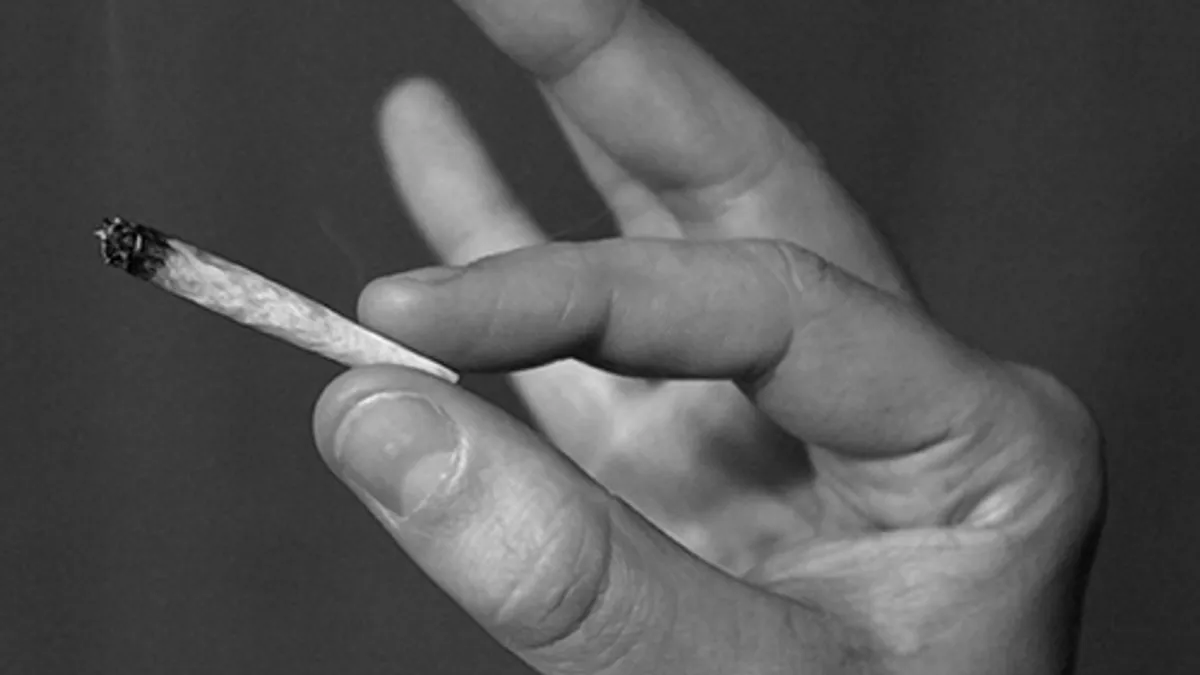The movement to legalize marijuana for recreational use in the U.S. is growing. Ballot initiatives in 2012 legalized the drug on a state level in Colorado and Washington state, and similar efforts are likely on the way in California and a number of other states.
This is cause for concern at colleges and universities. Popular culture has already created a stereotype of the college experience as including a fair amount of drugs, with the majority of college movies in particular having at least one stereotypical stoner character.
Some predictions for the impact of legal marijuana at U.S. campuses have thus far seemed like an overreaction. Marijuana use exists among college students nationwide, but are higher ed institutions in these states really about to succumb to reefer madness? Not likely.
Legal weed isn't boosting applications at Washington and Colorado schools
Early on, some speculated that legalization would result in schools in Colorado and Washington seeing student tokers applying in droves. This simply hasn't been the case, officials say.
“We aren’t getting a lot of questions about this," University of Colorado Director of Admissions Kevin MacLennan told Fox News earlier this month. Yes, CU has seen a 30% increase in admissions since the ballot initiative, but he attributes this boost to the school's adoption of the Common Application. If you're not familiar, it lets prospective students apply to any schools they're interested in nationwide on a single form.
Education Dive reached out to several schools in both states and received similar responses. Furthermore, even if legalization had played into college-aged tokers' enrollment decisions, the schools likely aren't keeping track of that. "We’re not asking students how, or if, marijuana laws play into their decisions," said Mike Hooker, Colorado State University's executive director of public affairs and communications.
Let's be honest, though: Colorado had a reputation before Amendment 64 was passed, and CU-Boulder was especially known in stoner circles for its April 20 "Smoke Fests." (Which didn't, mind you, come without campus police issuing citations.)
It also isn't leading more students to choose off-campus housing
Even if states legalize weed, it's still illegal on a federal level. As a result, colleges and universities, which receive federal funding, must stay in compliance with the higher law lest they risk losing aid.
You might expect that more students would stick it to the man, so to speak, and choose to live off campus, where they can presumably smoke with impunity. This also has not been the case.
"There was no noticeable increase in the number of students opting to live off campus this semester nor during the previous fall semester," said Washington State University News Assistant Editor Robert Strenge.
"Actually, we are seeing more students are choosing to live on-campus after their freshman year," said CSU's Hooker. "Last year we had just under 500 returning students and next year we have an additional 200 (so about 700 total) choosing to live on campus again."
That said, even in states where marijuana is still prohibited, students have long found ways to smoke on campus at their own risk, and, as stated above, the punishment for doing so at a college or university in Colorado or Washington remains the same as it was prior to the ballot initiatives. Students in those states face the same kinds of student conduct board hearings and, potentially, criminal penalties for violating student codes of conduct.
For example, CSU's policy states that students 21 and over possessing weed will be informed by campus police of the university's policy prohibiting alcohol or controlled substances on campus, as well as the student conduct policy addressing possession, and must leave the campus until they are no longer in possession. Students under 21 are issued an internal substance abuse citation — an administrative citation that requires a student conduct hearing as well as a monetary fine through the student conduct office. Repeat offenders are issued a county citation for possession, which also lands them a criminal history.
As with other campus issues, more education is probably the best course of action
Speaking to Go Local Worcester, University of Colorado School of Medicine Associate Professor of Psychiatry Christian Thurstone predicted a rise in young people seeking substance abuse treatment. Thurstone is medical director at Denver Health's Substance Abuse Treatment Education & Prevention and also serves on the board for anti-legalization group Smart Approaches to Marijuana. According to the National Institute on Drug Abuse, about 9% of marijuana users become addicted — a stat that reportedly rises to 17% among those who start smoking at a young age.
Legalization, says Thurstone, is likely to create the perception among college students that smoking is OK and won't come with a price. Among those prices: Losing out on career opportunities.
"Our students have to pass a drug test in order to be placed clinically," wrote Tova Wiegand-Green, dean of the school of health sciences at Ivy Tech Community College in Indiana, in a discussion thread on Education Dive's Higher Ed Management group on LinkedIn. (Indiana is currently considering decriminalization.) "The hospitals require it. Further, they will not hire if there is a positive finding of marijuana. They don't care if it is medical or otherwise. Marijuana use = No Job in Healthcare Careers. We have a very high per capita high-tech manufacturing base — and they do drug testing as well."
Similar situations likely exist in Colorado and Washington, which will require more education on the part of campus health officials and academic advisors.
Still, alcohol is entirely legal and, by comparison, 2 million people between the ages of 12 and 20 are categorized as heavy drinkers, according to the New York Times. Furthermore, a reported 4.4 million are binge drinkers, and the rates of addiction aren't that far off from marijuana. It can also probably be argued that alcohol, through over-consumption or reckless behavior, has likely resulted in more deaths and life-altering events.
Charly Rauscher, an independent consultant with N England Consulting who has previously worked in administrative roles at Dartmouth and Northeastern, reiterates that, as with any other campus issue, a greater deal of education will be necessary in states that have legalized cannabis.
"Because marijuana becomes legal, this doesn't mean students will change the way they act. Some will try and most will not. It’s just like drinking: Some do and most don’t," said Rauscher. "To overreact and say that campuses will run amok is just not accurate. As with other college dilemmas — for example, rape, alcohol abuse, hazing — education seems to be the key to helping. If the influx of marijuana deters college learning, then education might be the answer."
Would you like to see more education news like this in your inbox on a daily basis? Subscribe to our Education Dive email newsletter! You may also want to read Education Dive's look at 10 mobile apps making campuses safer.














